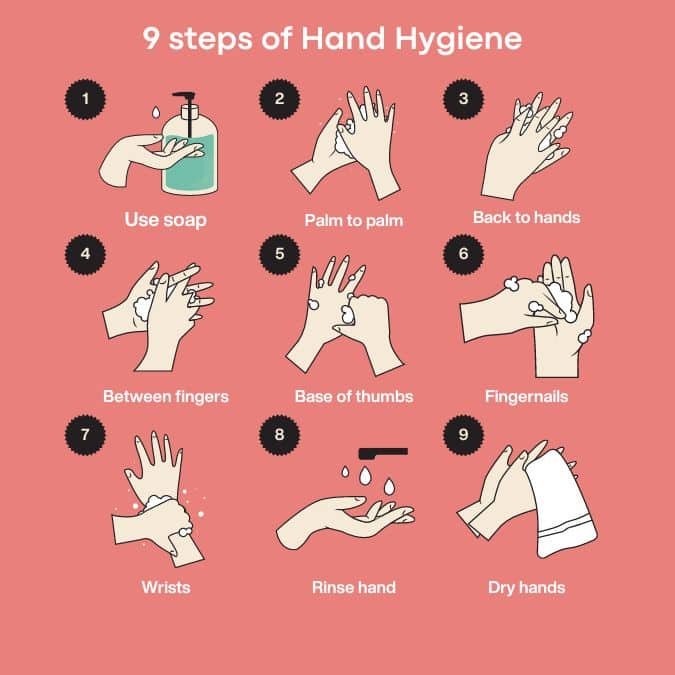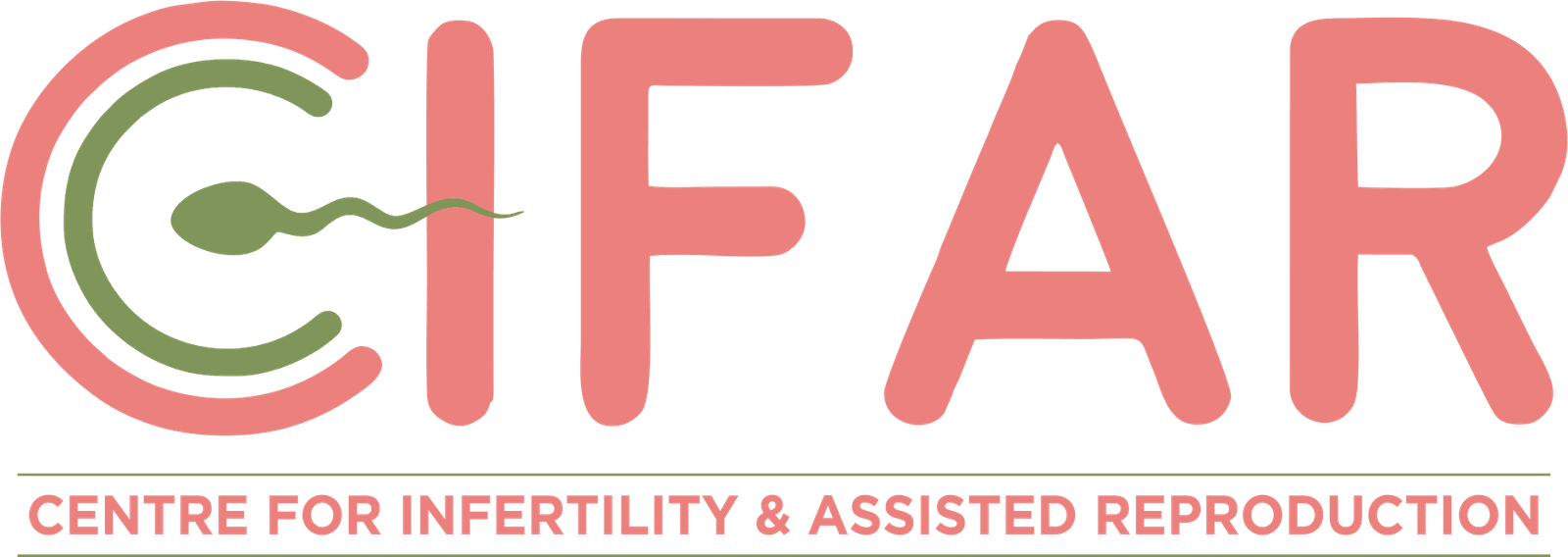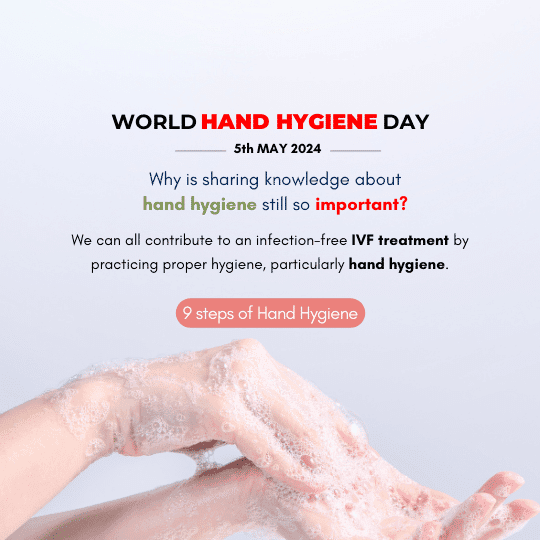Hand hygiene is essential for IVF safety. During IVF, eggs and sperm are handled in a laboratory setting to create embryos. These embryos are very delicate and susceptible to infection. Proper hand hygiene by staff and patients can help to reduce the risk of contamination and improve IVF success rates.
Here are the 9 key steps for proper hand hygiene during IVF treatment:

- Wash hands with soap and water for at least 20 seconds whenever they are visibly soiled, before and after any procedure, and before touching any embryos or equipment.
- Alcohol-based hand sanitizers can be used in addition to handwashing, but they should not be used as a substitute for washing hands with soap and water. Some alcohol-based sanitizers can contain volatile organic compounds (VOCs) which can be harmful to embryos.
- Clinics should have a clear hand hygiene policy that is communicated to all staff and patients.
- Proper hand hygiene is a responsibility we all share to contribute to an infection-free IVF treatment.
- At CIFAR, we are particularly vigilant about these hand hygiene guidelines, which is why our success rates are the highest, unique, and best.
- By following these 9 steps, we can ensure the safety and success of IVF treatments.
- Adhering to proper hand hygiene protocols is crucial for maintaining a sterile environment and protecting delicate embryos during IVF procedures.
- Regular handwashing with soap and water, and the use of alcohol-based sanitizers when appropriate, can go a long way in preventing infections.
- Prioritizing hand hygiene is an important part of delivering high-quality, safe IVF care for patients.
We can all contribute to an infection-free IVF treatment by practicing proper hygiene, particularly hand hygiene.
We at CIFAR are particularly concerned about these hand hygiene guidelines; hence, our success rates are the highest, unique, and best

